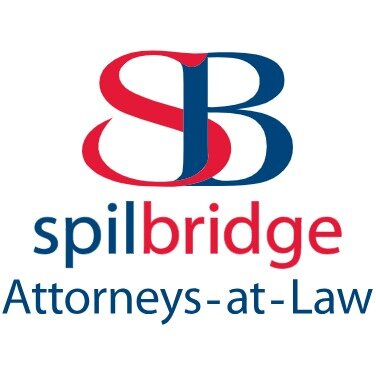Best Brokerage Lawyers in Latvia
Share your needs with us, get contacted by law firms.
Free. Takes 2 min.
Free Guide to Hiring a Real Estate Lawyer
Or refine your search by selecting a city:
List of the best lawyers in Latvia
About Brokerage Law in Latvia
Brokerage law in Latvia pertains to the regulation of intermediaries who facilitate transactions between buyers and sellers for a commission. This includes financial instruments, real estate, and other commodities. Latvian brokerage laws are designed to ensure transparency, protect consumers, and maintain fair trading practices. This legal framework is crucial for maintaining trust in financial transactions, given the dynamic nature of the market and international trade relationships.
Why You May Need a Lawyer
There are several scenarios where you might require legal assistance in the field of Brokerage in Latvia:
- Contract Disputes: Legal issues can arise concerning the terms of brokerage contracts or agreements.
- Compliance Issues: Ensuring that all operations comply with the existing regulatory framework.
- Licensing and Registration: Navigating the legal requirements for obtaining necessary licenses for brokerage services.
- Fraud and Misrepresentation: Legal action may be needed to address cases of fraud or misrepresentation by brokers.
- Fee Disputes: Disagreements over commission or fee structures between parties can necessitate legal intervention.
Local Laws Overview
Latvian brokerage laws are governed by national legislation, including the Financial Instrument Market Law and regulations by the Financial and Capital Market Commission (FCMC). Key aspects include:
- Licensing Requirements: Brokers must obtain a license to operate legally in the Latvian market.
- Consumer Protection: Laws are in place to prevent misleading practices and ensure full disclosure to clients.
- Anti-Money Laundering: Brokerage activities are monitored to prevent money laundering and other illegal activities.
- Confidentiality and Data Protection: Safeguarding client information is a prominent legal requirement.
- Advertising Regulations: Restrictions and guidelines exist for promoting brokerage services to prevent false claims.
Frequently Asked Questions
What is a brokerage license, and why do I need one?
A brokerage license is an official authorization allowing an individual or firm to offer brokerage services legally. It ensures that the broker meets all regulatory requirements, thereby protecting consumers and maintaining market integrity.
How can I find a licensed broker in Latvia?
You can verify a broker's licensing status by checking with the Financial and Capital Market Commission (FCMC), which maintains a registry of certified brokers.
What are the legal obligations of a broker towards clients?
Brokers are legally required to act in the best interests of their clients, maintain confidentiality, provide accurate information, and prevent conflicts of interest.
How is brokerage commission regulated?
Commission rates are agreed upon between the client and the broker, but they must comply with market standards to avoid unreasonable charges.
What steps should I take if I suspect broker fraud?
If you suspect broker fraud, you should gather all relevant documentation and immediately seek legal counsel to understand your options for redress.
Are there any restrictions on international brokers operating in Latvia?
Yes, international brokers must comply with Latvian laws and potentially register locally to ensure full regulatory compliance.
Can a broker terminate a service contract preemptively?
Termination conditions are typically specified in the brokerage agreement, and prematurely ending a contract without just cause may lead to legal consequences.
What are the penalties for non-compliance with brokerage regulations?
Penalties include fines, license revocation, and other legal actions depending on the severity of the non-compliance.
How do brokerage laws affect online trading platforms?
Online trading platforms must comply with the same laws applicable to traditional brokerage services, ensuring transparency and fair practices.
What legal recourse do I have if a broker fails to fulfill contractual obligations?
If a broker fails to meet their contractual obligations, you may file a complaint with the FCMC or pursue legal action through the courts to seek redress.
Additional Resources
For those seeking further information, the following resources may be helpful:
- Financial and Capital Market Commission (FCMC): The regulatory body overseeing brokerage services in Latvia.
- Latvian Bar Association: Offers a directory of qualified lawyers specializing in brokerage law.
- Consumer Rights Protection Centre (CRPC): Provides support for consumer-related issues in brokerage services.
Next Steps
If you need legal assistance in brokerage, consider the following steps:
- Identify the Issue: Clearly define the problem or question you have.
- Research: Conduct preliminary research to understand your rights and obligations.
- Consult a Professional: Seek advice from a lawyer specialized in brokerage law to help navigate the legal landscape and represent your interests.
- Legal Action: If necessary, initiate legal proceedings with the guidance of your lawyer.
By following these steps, you can navigate the complexities of brokerage law in Latvia more effectively and ensure your interests are best represented.
Lawzana helps you find the best lawyers and law firms in Latvia through a curated and pre-screened list of qualified legal professionals. Our platform offers rankings and detailed profiles of attorneys and law firms, allowing you to compare based on practice areas, including Brokerage, experience, and client feedback.
Each profile includes a description of the firm's areas of practice, client reviews, team members and partners, year of establishment, spoken languages, office locations, contact information, social media presence, and any published articles or resources. Most firms on our platform speak English and are experienced in both local and international legal matters.
Get a quote from top-rated law firms in Latvia — quickly, securely, and without unnecessary hassle.
Disclaimer:
The information provided on this page is for general informational purposes only and does not constitute legal advice. While we strive to ensure the accuracy and relevance of the content, legal information may change over time, and interpretations of the law can vary. You should always consult with a qualified legal professional for advice specific to your situation.
We disclaim all liability for actions taken or not taken based on the content of this page. If you believe any information is incorrect or outdated, please contact us, and we will review and update it where appropriate.
Browse brokerage law firms by city in Latvia
Refine your search by selecting a city.













